The Basics of Guinea Pig Care 101 for Happy and Healthy Cavies
In this blog, we are going to show you the basics of guinea pig care so that you can be sure your new pet guinea pig is happy and healthy!

Key Takeaways:
- Understanding the essentials of guinea pig care is crucial for their well-being.
- A balanced diet, proper habitat, and social interaction are key to a guinea pig's health.
- Regular health checks and grooming are necessary for maintaining a guinea pig's quality of life.
Guinea pigs, also known as cavies, are adorable, sociable small animals that have been popular pets for generations. Their expressive personalities and relatively low maintenance requirements make them great pets for individuals and families alike. However, like all pets, they require specific care to ensure they live a long, happy, and healthy life. This comprehensive guide will cover everything you need to know about guinea pig care, from diet and housing to socialization and health.
Understanding Guinea Pig's Diet
A guinea pig's diet is foundational to its health. Guinea pigs thrive on a diet rich in fiber, which is why feeding hay, such as timothy hay, should be a constant in their daily intake. Hay not only provides the necessary fiber for digestive health but also helps maintain their teeth, which grow continuously. Fresh greens like leafy greens and red peppers should be included to provide adequate vitamin C, as guinea pigs cannot produce this essential nutrient themselves.
What goes in must come out—which is why it's important to have the right diet for your guinea pigs. A balanced diet should include hay, fresh vegetables, and quality pellets specifically formulated for guinea pigs. Hay should make up the majority of their diet (75%), with fresh vegetables making up 20% and the remaining 5% being pellets or other treats like fruits. Fresh water should also be available at all times.
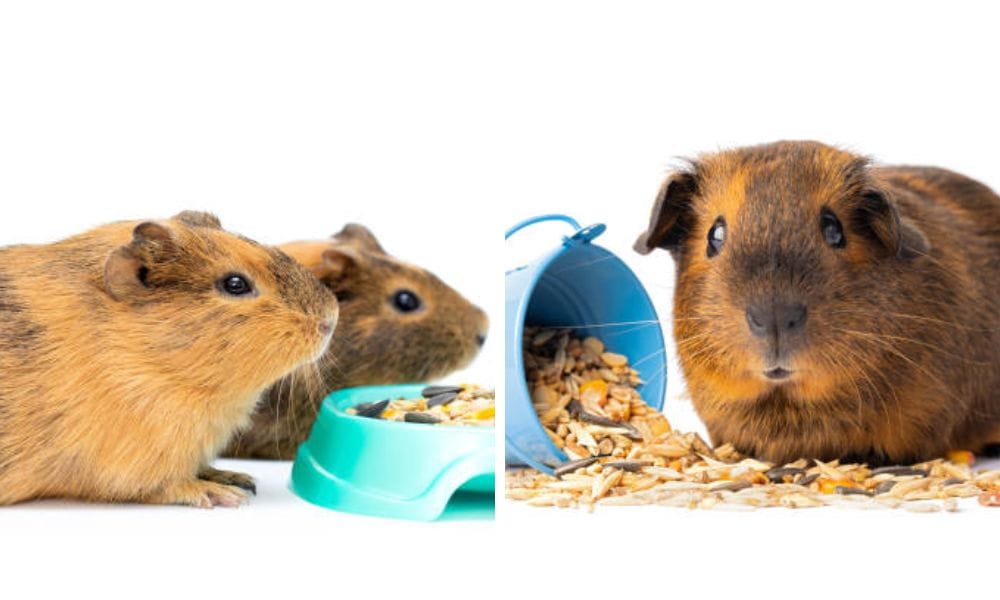
The Importance of Vitamin C
Vitamin C is crucial for a guinea pig's health, preventing scurvy, a disease that can cause lethargy, skin problems, and joint pain. Unlike humans and other small animals, guinea pigs cannot synthesize their own vitamin C, so it must be a staple in their diet. This can be provided through fresh vegetables, fruits, and high-quality pellets fortified with vitamin C. Always ensure that your guinea pig's diet is balanced and avoid overfeeding fruits due to their high sugar content.
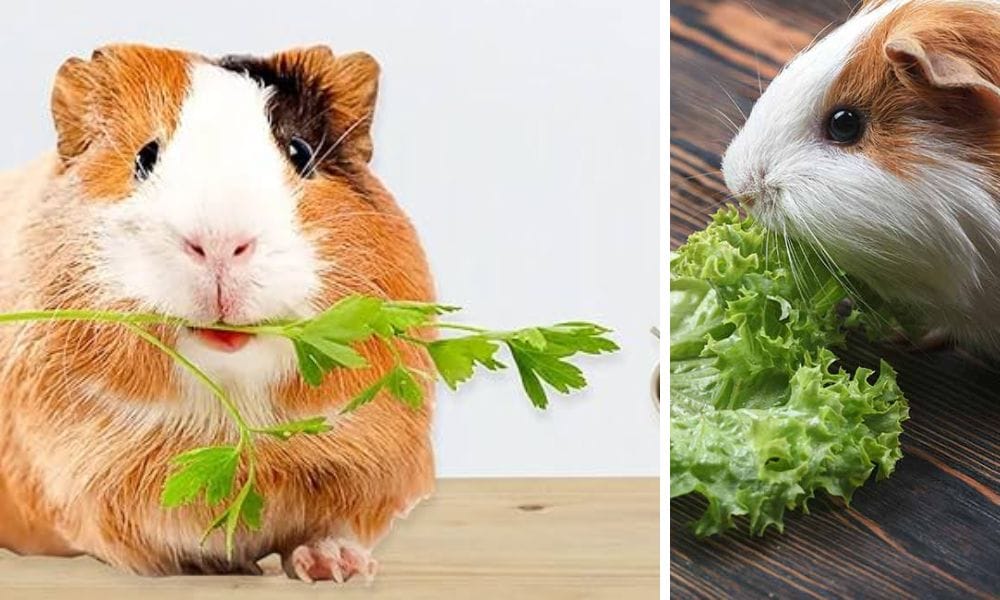
Creating a Comfortable Habitat
Guinea pigs require a large cage to explore and exercise. Store bought cages often do not provide adequate space. A large cage with a solid floor, lined with fleece liners or paper-based bedding, is ideal. It should be free from drafts and extreme temperatures, as guinea pigs are sensitive to their environment. The cage should include hideouts for privacy, as guinea pigs are prey animals and need places to feel secure.
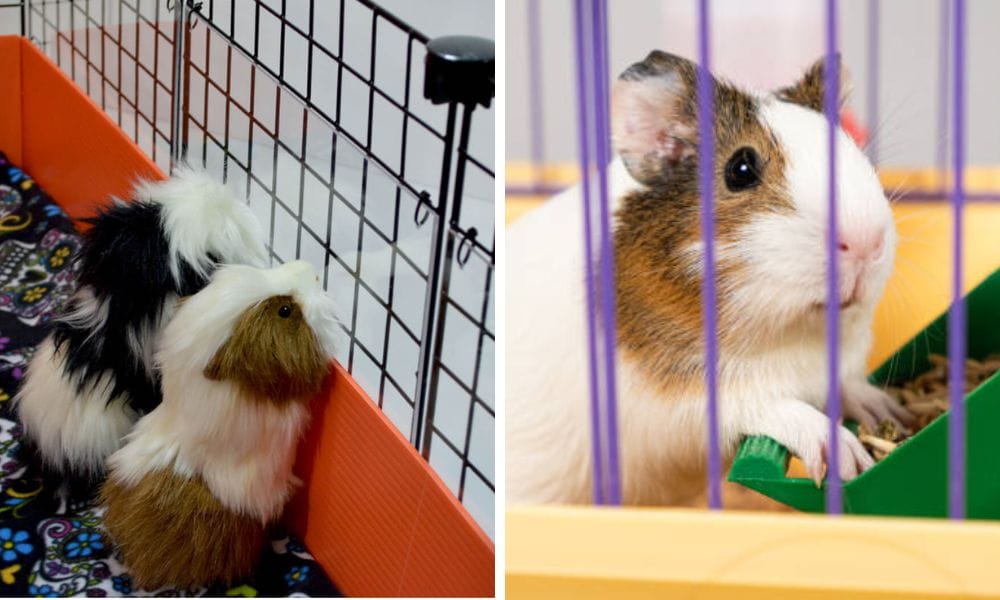
The Need for Regular Cleaning
Keeping guinea pigs means maintaining a clean habitat to prevent health issues. The entire cage should be cleaned at least once a week, with spot cleaning done daily to remove soiled bedding and uneaten food. Water bottles and food dishes should be washed regularly to prevent the buildup of harmful bacteria. A clean environment is essential for the well-being of your guinea pigs.
Social Interaction and Companionship
Guinea pigs are social animals that thrive on interaction with their owners and other guinea pigs. Spending at least an hour a day with your pet guinea pigs can significantly improve their quality of life. Two guinea pigs can provide each other with companionship, but ensure they are compatible to prevent fighting. Introducing new guinea pigs should be done carefully to ensure a harmonious relationship.
Socialization is an important part of any pet’s life, but especially for guinea pigs since they are naturally social animals who enjoy living in groups or pairs of two or more individuals from the same species. Spending time interacting with your piggies each day can help build their trust in you and make them feel secure in their environment. This can be done through simple activities such as gentle petting or offering treats when they approach you on their own accord. This will help strengthen the bond between you and your pet!
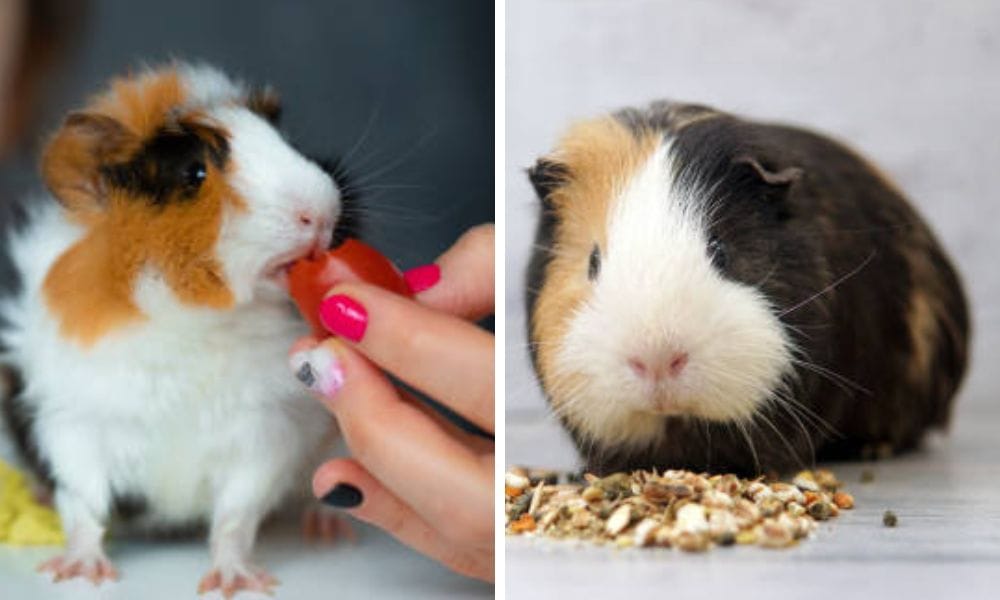
Guinea pigs have fairly specific needs when it comes to care—but taking care of these little guys isn't hard if you know what to do! Having proper nutrition, sufficient exercise, and lots of socialization are key components of keeping your new pets healthy and happy for years to come! With just a few simple steps, you can ensure that your piggies live a long and fulfilling life with you as their loving companion!
Seasonal Care for Guinea Pigs
As the seasons change, so do the needs of your guinea pig. During the warmer months, most guinea pigs enjoy a cooler environment to prevent heatstroke, a serious risk to a guinea pig's health. Ensure their habitat is away from direct sunlight and consider using fans or frozen water bottles wrapped in towels to keep the area cool. Conversely, in colder seasons, guinea pigs need a warm, draft-free area. It's crucial to monitor the temperature of their living space, as guinea pigs are sensitive to extreme temperature changes.
In addition to temperature control, seasonal changes also mean different types of fresh foods are available for your guinea pig's diet. While grass hay should remain a staple, you can supplement their diet with seasonal vegetables and fruits. This not only provides variety but also ensures that your guinea pig is getting a range of nutrients throughout the year. Remember, sudden changes in diet can upset their digestive system, so introduce new foods slowly and in moderation.
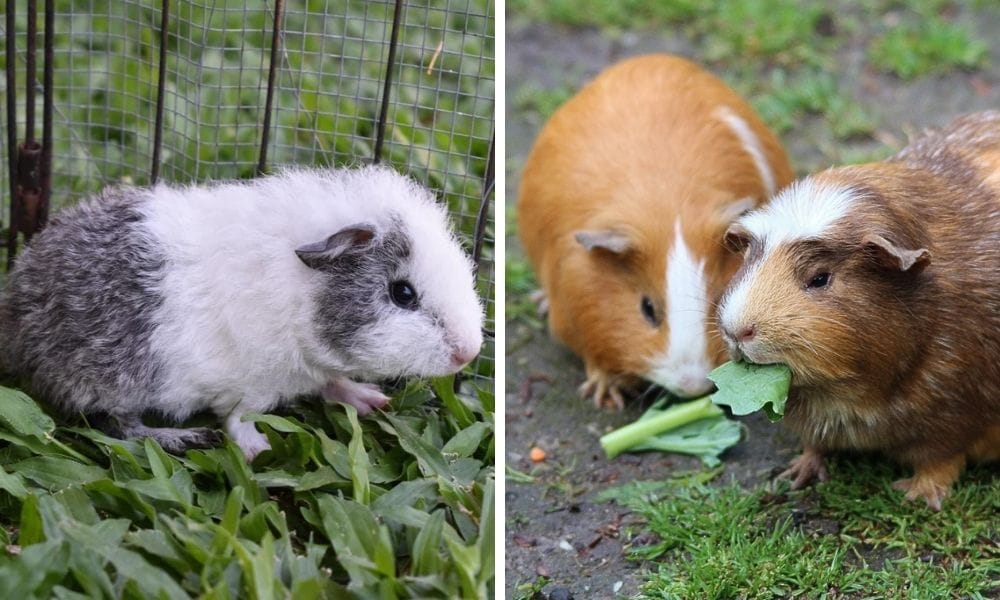
Understanding the Delicate Digestive System of Guinea Pigs
Guinea pigs have a unique digestive system that requires a careful balance of nutrients to function properly. As guinea pig owners, it's crucial to understand that their diet must be rich in fiber to keep their digestive tract moving. Without a constant supply of hay, guinea pigs can easily develop gastrointestinal issues that can be detrimental to their health. It's not uncommon for a guinea pig to stop eating if their digestive system is upset, which can quickly become a medical emergency.
To maintain your guinea pig's health, ensure that their diet consists of a variety of fresh vegetables along with high-quality hay. Vegetables like bell peppers and leafy greens are excellent sources of Vitamin C, which guinea pigs cannot produce on their own. Be mindful of the amount of fruit you offer, as the sugar content can disrupt their delicate gut flora. Regularly monitoring their eating habits can help you catch any potential issues early on.
Understanding Guinea Pig's Dietary Restrictions
When it comes to a guinea pig's diet, it's not just about what they should eat, but also what they must avoid to maintain their well-being. Just like dogs can't eat chocolate, there are certain foods that could harm your guinea pig. For instance, anything containing caffeine or dairy should be strictly off-limits. These items can disrupt their delicate digestive systems and lead to serious health issues.
Moreover, while guinea pigs enjoy a variety of fresh foods, some vegetables like onions and garlic can be toxic to them. It's crucial to research and consult with pet shops or veterinarians before introducing new foods into your guinea pig's diet. Always err on the side of caution and stick to a diet that's been proven safe and nutritious for these furry friends.
Recognizing Signs of Good Health in Guinea Pigs
When it comes to assessing your guinea pig's health, there are a few telltale signs that indicate they're thriving. A healthy guinea pig will have bright, clear eyes and a glossy coat. Their appetite for a balanced guinea pig diet should be hearty, and they'll be active and curious about their surroundings. It's easy to notice when a guinea pig feels good; they may even perform little hops known as "popcorning," which is a clear sign of happiness and well-being.
Conversely, it's crucial to be vigilant for any changes in these behaviors or appearances, as they can be early indicators of health issues. Weight loss, lethargy, or changes in eating habits can all signal that something isn't right with your pet's health. Regular health checks, including weighing your guinea pig and monitoring their food intake, are simple yet effective ways to keep tabs on their well-being. Remember, a guinea pig's diet is the cornerstone of their health, so ensure it's always balanced and nutritious.
The Role of Proper Bedding for Guinea Pig's Feet
Guinea pigs' feet are delicate, and they require a specific type of bedding to maintain their well-being. The ideal bedding will be soft, absorbent, and dust-free to prevent any respiratory issues or irritation to their feet. Many owners opt for fleece liners or paper-based bedding, as these materials are gentle on guinea pigs' feet and easy to clean. It's important to avoid wood shavings, particularly cedar or pine, as they can be harmful to your pet's respiratory system and can cause foot sores.
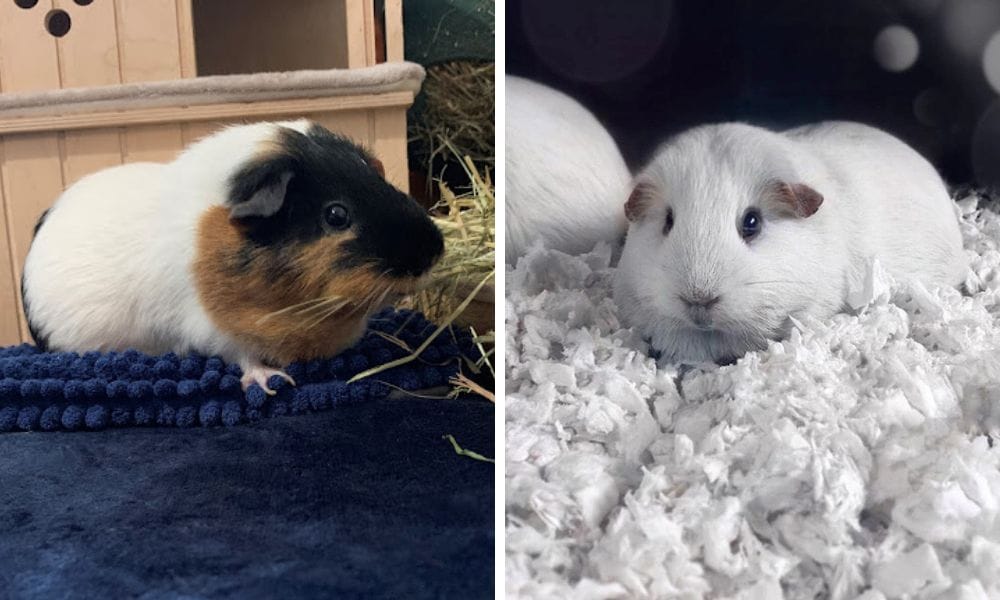
Regularly changing the bedding is also a key aspect of maintaining the health of your guinea pig's feet. Soiled bedding can lead to infections and discomfort, so it's recommended to clean the habitat at least once a week, with spot cleaning as needed. This not only ensures a hygienic environment for your guinea pig but also contributes to their overall comfort and well-being. Remember, happy feet mean a happy and healthy guinea pig, making their care routine both easy and rewarding.
The Significance of Foot Care in Guinea Pigs
Guinea pigs' feet are delicate and require special attention to prevent injuries and infections. Unlike dogs, guinea pigs do not have protective pads on their feet, making them susceptible to sores and bumblefoot, a painful condition. To support the health of your guinea pig's feet, ensure their cage has a smooth, solid floor and avoid wire-bottomed cages which can cause harm.
Regularly checking your guinea pig's feet for any signs of redness, swelling, or wounds is an essential part of their care routine. If you notice any issues, it's important to seek veterinary care promptly. Maintaining clean and dry bedding also contributes to the well-being of their feet. Remember, prevention is key when it comes to the health of your guinea pig's feet, making their care routine easier and more manageable.
The Significance of Proper Hydration for Guinea Pigs
Hydration is as vital to guinea pigs as it is to any other living creature. A guinea pig's diet should always be supplemented with fresh, clean water. Many guinea pig owners opt for water bottles because they are less likely to be contaminated with bedding and food, unlike water dishes. However, it's important to check these bottles daily, as the small ball in the nozzle can sometimes stick, preventing your guinea pig from getting enough water.
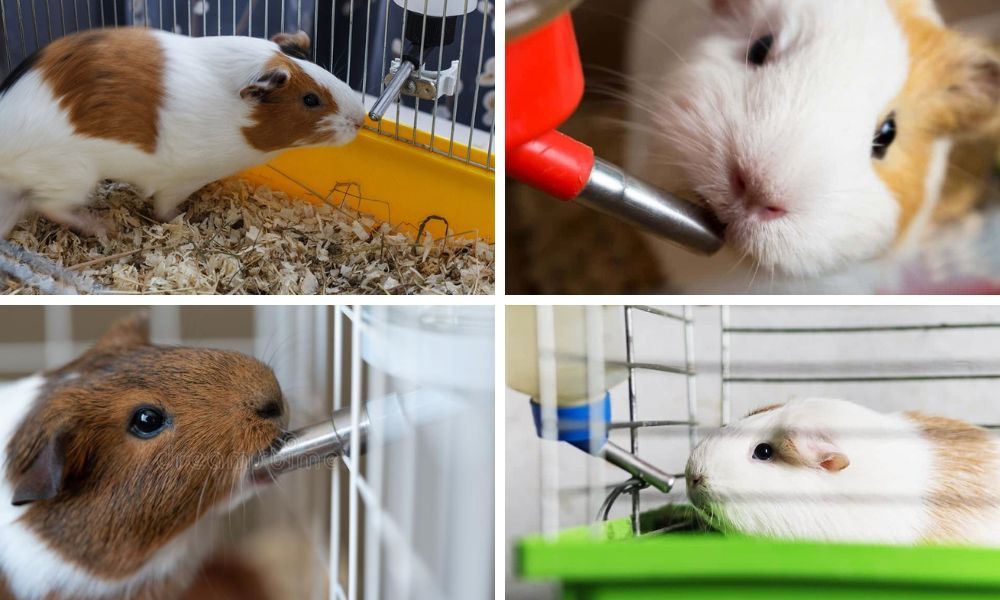
Moreover, guinea pigs regularly consume water after eating dry foods like hay, so it's essential to place water sources near their feeding areas. Some guinea pigs may prefer water dishes, which can be easier on their feet and rear end, especially for those with sensitivities or arthritis. Whichever method you choose, make sure to clean the water bottle or dish frequently to prevent the growth of harmful bacteria and ensure the well-being of your small animal companion.
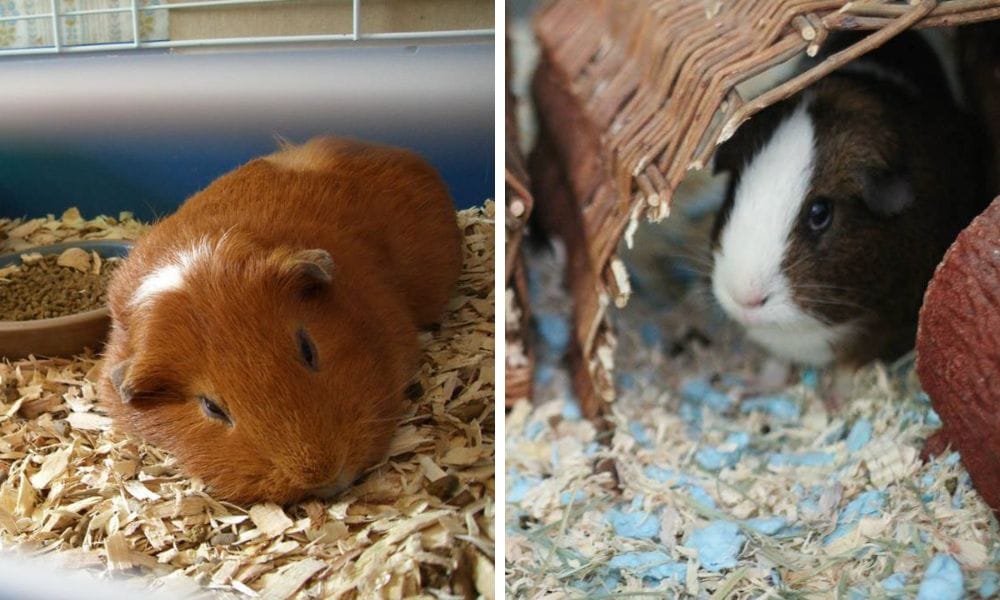
Enrichment Activities for Mental Stimulation
Guinea pigs are intelligent creatures that require mental stimulation to maintain their well-being. Enrichment activities can prevent boredom and encourage natural behaviors. One way to enrich your guinea pig's life is by providing a variety of toys that they can chew on, push around, or hide in. Toys made from safe, chewable materials like untreated wood or cardboard can also help with nail cutting, as they wear down the nails naturally during play.
Another form of enrichment is creating obstacle courses or mazes with tunnels and hideouts. This not only encourages physical activity but also appeals to their instincts as a prey species to explore and hide. You can use simple items from a pet store or DIY solutions to create these environments. Always supervise your guinea pigs during playtime to ensure their safety, and spend time interacting with them, as guinea pigs love social engagement with their owners.
The Benefits of Exercise
Exercise is vital for guinea pigs to maintain healthy energy levels and prevent obesity. Providing a safe, enclosed space outside their cage where they can explore and play for at least an hour daily is beneficial. Toys and tunnels can add stimulation and encourage physical activity. Always supervise your guinea pigs during playtime to ensure their safety.
Guinea pigs need plenty of room to move around in order to stay healthy and strong. They also need mental stimulation, so providing them with toys like chew sticks or play tunnels can help keep them entertained and active. An exercise wheel is also a great way to give your guinea pigs some exercise without taking up too much space in their cage.
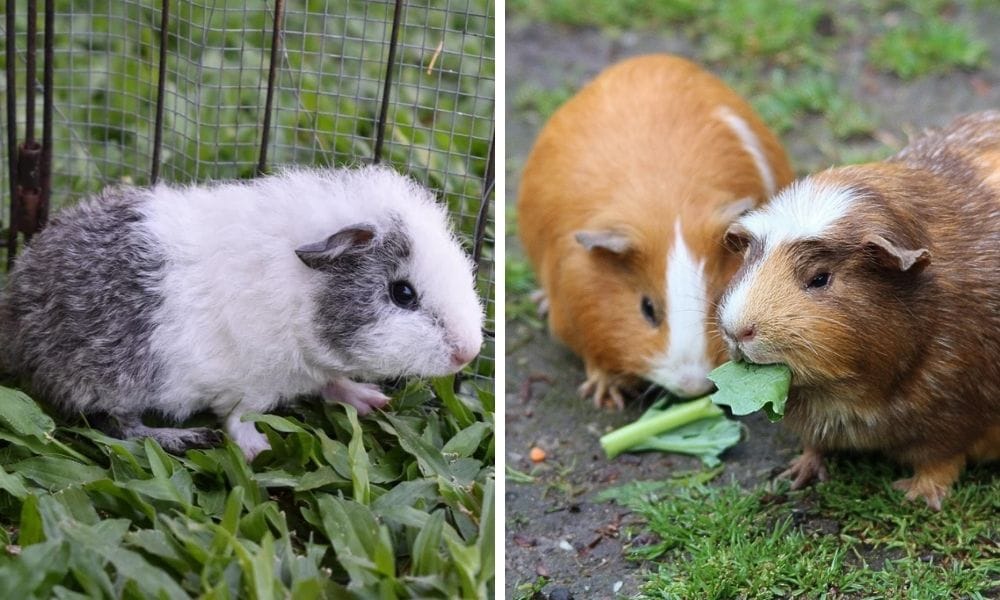
Grooming and Nail Care
Long haired guinea pigs require regular grooming to prevent their fur from matting. Short-haired breeds are lower maintenance but still benefit from occasional brushing. Nail trimming is an essential aspect of guinea pig care. Guinea pig nails grow continuously and can become overgrown if not regularly trimmed, leading to discomfort and mobility issues.
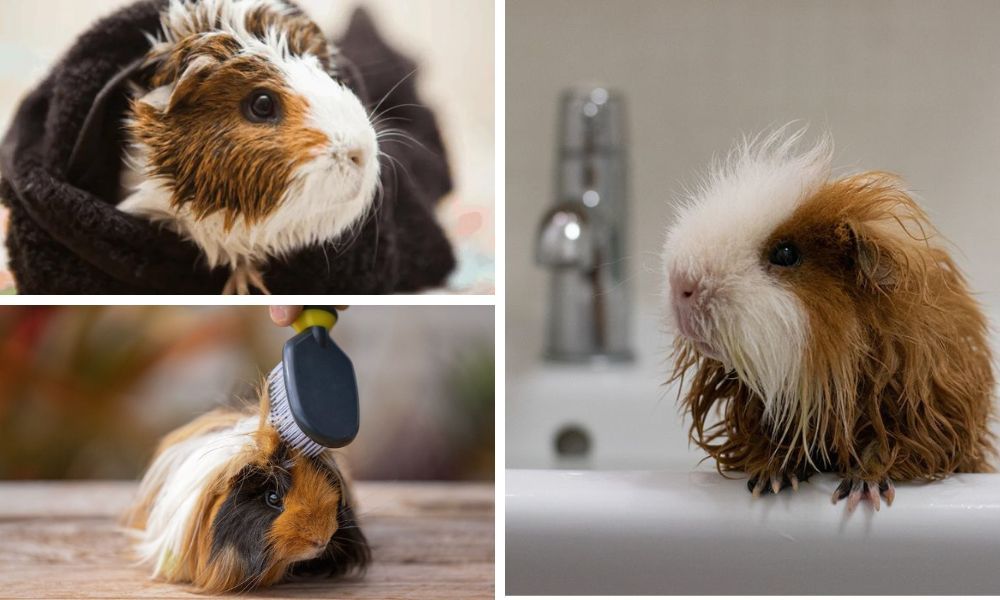
Health Monitoring and Veterinary Care
Regular health checks are crucial for early detection of health problems. Monitoring your guinea pig's weight, eating habits, and energy levels can alert you to potential issues. Veterinary care should be sought for any signs of illness, as guinea pigs can deteriorate quickly. A vet experienced with small animals can provide the necessary care and advice for keeping guinea pigs healthy.
Understanding Guinea Pig Behavior
Guinea pigs communicate through various sounds and body language. They rarely bite, but may nip if frightened or mishandled. Loud noises and sudden movements can scare them, so it's important to approach and handle them gently. Understanding their behavior will help you build a trusting relationship with your guinea pigs.
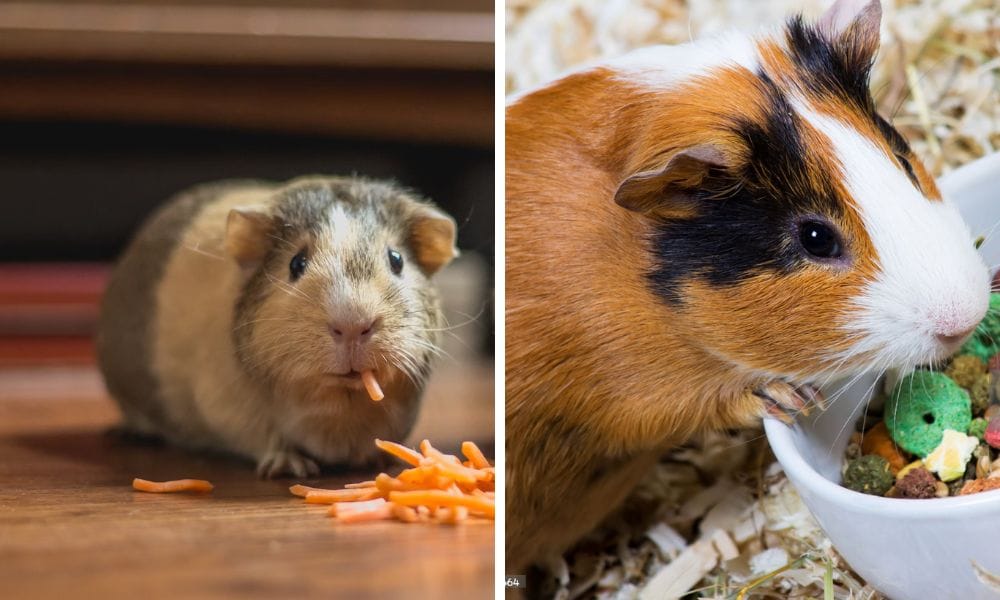
The Joys of Guinea Pig Ownership
Guinea pigs make rewarding pets for those willing to invest time in their care. Their playful antics and affectionate nature can bring joy to any household. By providing proper care and attention, you can ensure that your guinea pigs live a full and contented life.
If you’re considering getting guinea pigs as a pet, you need to understand the basics of guinea pig care. From diet to exercise and socialization, there are several key factors that are essential for keeping your guinea pigs healthy and happy. Let’s take a look at the ins-and-outs of guinea pig care.
Cage
Guinea pigs require special cage that fits their needs. Guinea Pig Cages shopping can be sometimes overwhelming. Most of the pet store cages are not only expensive but they have way too small of floor space to house a guinea pig - but don't worry! We have done all the research for you and narrowed it down to the three best guinea pig cages on the market so that you can choose the perfect one for your furry friend. Each of these cages has unique benefits that make them perfect for different types of guinea pigs. Tap the link below to see the full details of great guinea pig cages!
Summary
Guinea pig care involves a commitment to providing a balanced diet, a spacious and clean habitat, regular grooming, and companionship. By understanding their dietary needs, especially the importance of vitamin C and hay, and their social nature, you can ensure that your guinea pigs thrive. Regular health checks and veterinary care are also essential to their well-being. With the right care, guinea pigs can be delightful companions for many years.
FAQ Section
Q: How often should I feed my guinea pig fresh vegetables? A: Fresh vegetables should be a part of your guinea pig's daily diet. Offer a variety of vegetables in small quantities to ensure they receive adequate vitamin C and other nutrients.
Q: Can guinea pigs live alone, or do they need a companion? A: While guinea pigs can live alone, they are social animals and often do better with a companion. If you choose to have only one guinea pig, ensure you spend significant time interacting with them daily.
Q: How can I tell if my guinea pig is sick? A: Signs of illness in guinea pigs can include changes in eating or bathroom habits, lethargy, weight loss, or unusual vocalizations. If you notice any of these signs, consult a veterinarian experienced with small animals immediately.

